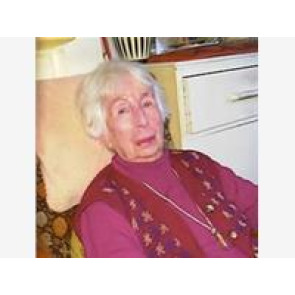ANNETTE EICKRemembering Annette Eick, who died on 25 February, 2010. Ms Eick was one of Brixham's most colourful characters, whose life was made into a film which has been shown in 12 countries. She was 100 when she died.Ms Eick lived in her home at Northfields Lane until three months before she died at Laywell Nursing Home.The prolific poet and diarist, was born a Jew in Germany in 1909 and spent her teenage years and early life in pre-war Berlin, an exciting and liberal city as portrayed in the popular musical Cabaret.She managed to flee to England at the outbreak of the Second World War while her younger brother Horst escaped to Denmark.Sadly, their parents Louis and Minna were left behind and died in the Auschwitz concentration camp.Ms Eick began a new life in London, mixing with the artistic and literary set where she met many like-minded people including her long-term friend and companion of 40 years Trude Klingel, who died in 1989. Annette had always wanted to live near the sea, so the pair moved to Brixham in the 1960s where they opened the port's first nursery in 1964.Her funeral at the T & I Stockman Chapel was attended by friends from Brixham and London and her niece and sister-in-law, Kirsten and Lilo Eick, who travelled to the town from Berlin.Among the mourners was Jules Hussey, who made a short 20-minute film called The Immortal Muse about Ms Eick five years ago, excerpts of which were shown at the funeral.Since it was made in 2004 the film has been screened in film festivals in 12 countries.Jules, of London, first met Annette 12 years ago while she was being interviewed by American film makers for a film about Nazi Germany."I was a fixer for the film," Jules explained. "Annette was interviewed about how liberal and exciting Berlin was between the wars."She was in her 20s at that time and had a bit of a wild time. Her Berlin days were amazing."She always identified herself firstly as a creative being, secondly as a German and lastly as Jewish. She said her Jewish identify was forced upon her by Hitler."She was interviewed for a book, quite a few academics have written about her, she was in the American documentary and our film but she never talked about the death of her parents."The Germany she left was exciting and liberal but she never wanted to go back there. She very much made Brixham her home."When she opened the first nursery in Brixham she embraced a lot of techniques that even today seem innovative."I made the film because hers seemed a story worth telling, not just about the Nazis and Hitler but the strength of personality and spirit that kept her going."She was really stubborn. She was incredibly honest and straight-talking. She had a really good way with words and was quite cheeky and mischievous with word play."She could be quite offensive but would then turn on the charm and win people back. She was quite a character."
Keep me informed of updates



